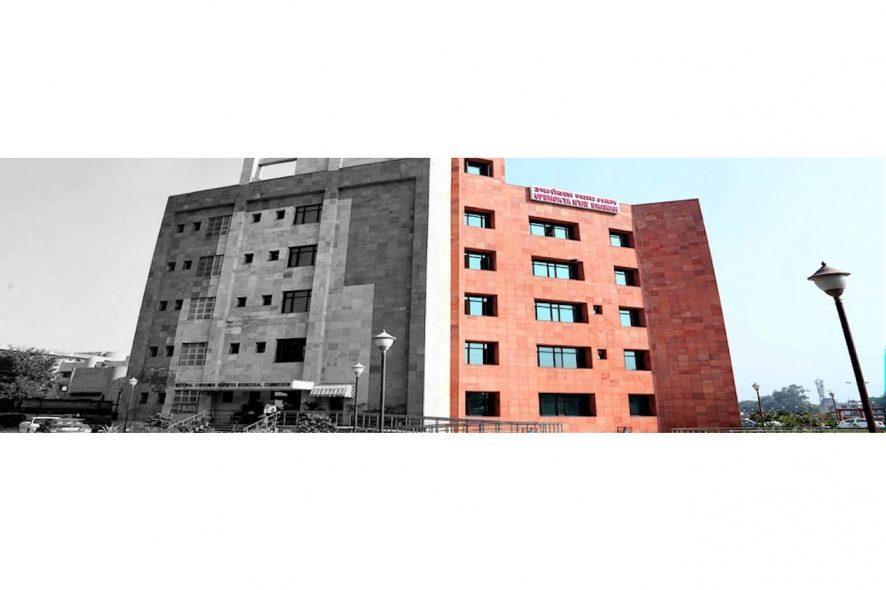National Consumer Disputes Redressal Commission (NCDRC): The Division Bench of Dr S.M. Kantikar (Presiding Member) and Dinesh Singh (Member), while addressing the consumer complaint held that:
Mode of treatment/ skill differ from doctor to doctor and the doctor is not liable for negligence if he performs his duty with reasonableness and with due care.
Complainant 1 (hereinafter referred to as ‘the patient’) was suffering from congenital spinal deformity. Her father (complainant 2) consulted Dr Rajendra Prasad and advised Complainant 2 to contact OP 2. The patient was taken to OP 1 who examined the patient and advised urgent surgery and the delay otherwise will aggravate the disease.
Factual Matrix
It was alleged that operation took long time, the patient was taken to operation theatre (OT) at 9 a.m. and operation completed at 5 p.m. After the operation one junior doctor came from OT and informed the complainant 2 that operation was successful. The patient’s father went to see his daughter in the recovery room, but she was in semi-conscious state & crying. At 5.30 p.m., he noticed no movements in her legs and same was informed the duty doctors. The CT scan of the operated area was done and after examining CT report, the Opposite Party 2 expressed with sorry figure to the Complainant 2 and his elder brother, Dr. Sarveshwar Puri that one screw was pressing the spinal cord and as a result thereof the reoperation was necessary for removal of the said screw. It was further alleged that the C-arm was not used during the operation as it was not functioning properly and it was not disclosed by the Opposite Party 2. It was further alleged that during any spinal surgery, presence of Neurosurgeon was must, but in the present case, the operation was performed under the supervision of the Opposite Party 2 only, who was just an orthopaedic surgeon. After the operation on the insistence of the Complainant 2, then only from Neurosurgery Department Dr. S. S. Kale the Neurosurgeon (the Opposite Party 3) was called. Thereafter 2nd operation was conducted at 7.30 pm in the presence of the Neurosurgeon Dr S. S. Kale. The operation ended at 9.00 pm. The patient remained in ICU for 10 days, but no recovery in movements of the lower part of the body.
Patient became paralysed. On being aggrieved, complainants filed the consumer complaint under Section 21(a)(i) of the Consumer Protection Act against the AIIMS and the treating doctors for gross carelessness and deficiency in service causing complete paralysis of lower part of patient’s body and damage to other organs.
Analysis and Decision
Bench noted the fact that OP 2 i.e. the doctor at AIIMS ruled out the presence of any spinal cord anomalies with the help of investigations like CT and MRI of the whole spine. Thereafter, the patient was advised for corrective bony deformative surgery for the patient and in Commission’s opinion, it was reasonable and standard of spinal surgical practice from the AIIMS doctors.
From medical literature from the Standard textbooks on Spinal Surgery it is apparent that any surgical procedure complications are inherent.
It is not uncommon that while putting the rod into a corrective position, at times the screws moves slightly from the original position, which can cause neurological or vascular problem in few patients.
In the instant matter, as soon as the neurological complication was noticed, the CT scan revealed one of the screws penetrating the spinal cord. Hence the decision to remove the same was taken in consultation with the parents of the child. Methylprednisolone was given as an established treatment protocol in acute spine cord injury and decongestants were given to prevent CSF leak. This cannot be construed as shortcomings or medical negligence.
Therefore, in view of the above discussion, Commission could not find the case of medical negligence and stated that the spinal correction surgery took place as per the accepted standards and referred to the Supreme Court decision in Achutrao Haribhau Khodwa v. State of Maharashtra, (1996) 2 SCC 634.
While adding that the Bench has sympathy for the patient for having Congenital Kyphoscoliosis deformity, however, sympathy cannot substitute for conclusive evidence of medical negligence.
Advice by the Commission:
AIIMS is a premier institute in India, renowned over the decades for its illustrious work. Its ‘Scoliosis and Spine’ Unit has been running since 1976, under ‘Orthopaedics’. We may observe that ‘Scoliosis and Spine’ requires an integrated concomitant approach by both ‘Orthopaedics’ and ‘Neurosurgery’. To take its Unit to the next level, as a systemic improvement, the Director, AIIMS may kindly consider enhanced integration of ‘Orthopaedics’ and ‘Neurosurgery’ in its said Unit, including by posting both ‘Orthopaedics’ and ‘Neurosurgery’ therein as well as working towards creating a speciality in its own right for ‘Spinal Surgery’, having knowledge in both ‘Orthopaedics’ and ‘Neurosurgery’. [Shrishti Puri v. AIIMS, Consumer Case No. 54 of 2007, decided on 09-02-2021]
Advocates who appeared:
For Complainants:
Anand S. Asthana, Advocate
Pankaj Singh, Advocate
Dr Someshwar Puri (complainant – 2)
For Opposite Parties:
Vikrant N. Vasudeva, Advocate
Mr Parv Ahluwalia, Advocate
Sarthak Chiller, Advocate
Dr Arvind Jaiswal (OP-2)
Dr Shashank Shekhar Kale (OP-3)






